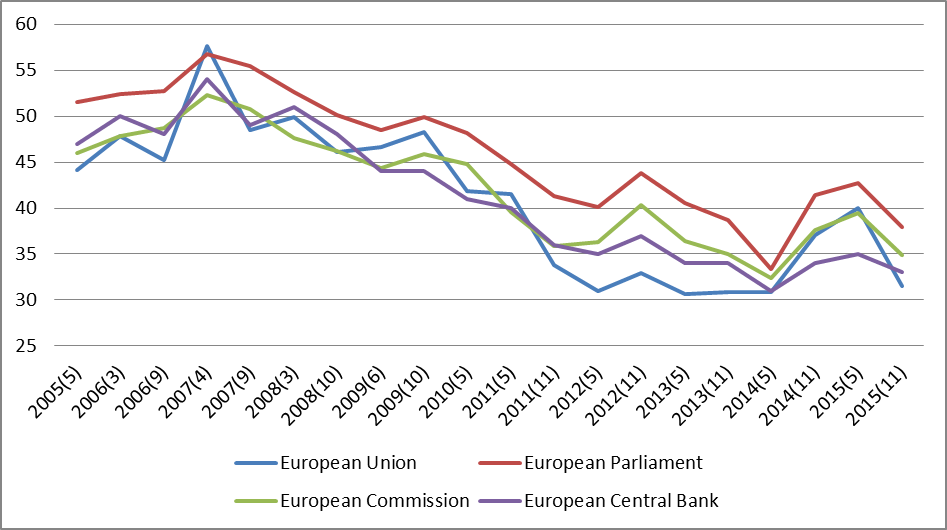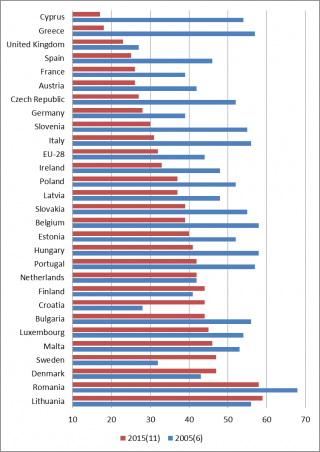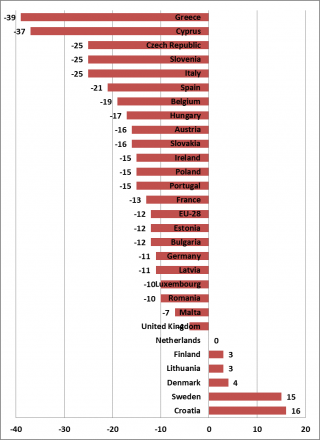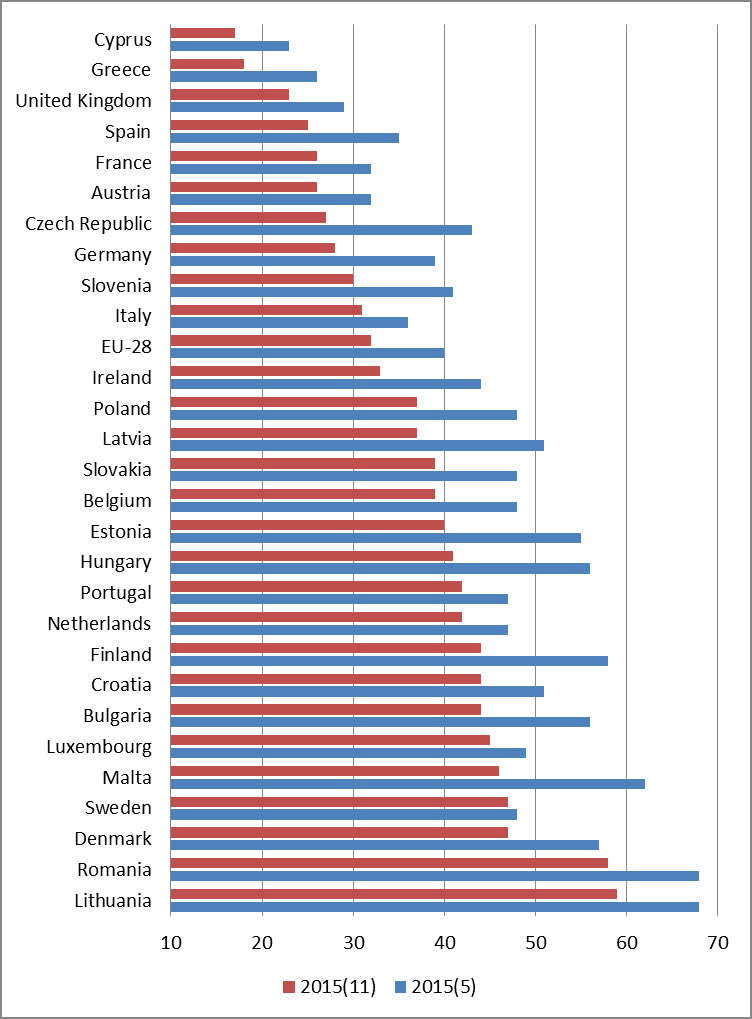THOMAS KARV
The European Union (EU) is at a cross-road and has been so at least since the start of the financial recession in 2008. Taking the development in political trust into consideration, a future re-nationalization of the EU-area is more and more becoming a real possibility.
For a long time the EU has been perceived as a guarantee for some kind of both political and social stability within the EU-area. However, since the start of global financial recession in 2008 the public focus has to a larger extent been shifted to the perceived side effects of European integration and the failure of the EU in handling the financial recession and the following Eurocrisis. Taking also the current development within the EU-area into consideration, first and foremost the current migration crisis, it is undoubtedly becoming harder and harder for the European citizenry to remember the original idea behind European integration.
Political trust is the most specific way of measuring support for a political regime, including a supranational one. When political trust is declining it is usually a sign that the political regime is not performing accordingly to the demands of the citizenry. Short-term fluctuations in political trust are usually to be expected, but more long-term trends in declining trust is usually perceived to be more challenging also to the political system as a whole. When trust diminishes it becomes harder and harder for the political authorities to implement necessary unpopular policies through the political institutions. The European Union is especially vulnerable for declining levels of political trust because as a, relatively, new political regime the EU is still trying to legitimize itself in the eyes of the European citizenry. To legitimize the EU in the minds of the European citizenry was hard also during the “good years” when the more integrated Eurozone members also were performing economically better than the less integrated non-Eurozone EU-members. As a result of the transformation during the last 20 years from an elite-driven to a citizen-driven integration project more voluntarily transfer of decision-making powers from the national to the European level is more or less impossible without the support from the respective national citizenry.
Eurobarometer is a series of public opinion surveys conducted regularly on behalf of the European Commission since 1973. Political trust in Europe is, mostly, measured twice a year and has been measured in the current 28 member states since 2005. The question asked for measuring political trust is: “I would like to ask you a question about how much trust you have in certain institutions. For each of the following institutions, please tell me if you tend to trust it or tend not to trust it or don´t know?”

Since 2005 there is a downward trend in trust for all the important EU institutions. The development in trust also suggests that EU citizens seem to put all the EU institutions in the same box, which is not surprising taking into consideration the character of the EU as an “unidentified political object”, to borrow a quote from the former president of the European Commission Jacques Delors (1985–1995).
Regarding trust in the EU the most trusting citizens are not from the, commonly regarded as, more trusting northern European societies but from Lithuania and Romania. The differences in trust in the EU seem to a larger extent to be based on national characteristics than geographical location or historical leverage that still seems to be the case regarding trust in national political institutions, as described in the earlier blog post. Trust in the EU has on an average declined by 12 percentage points within a 10-year period, and the political trust was in the latest Eurobarometer from November 2015 lower in 22 of the 28 member-states in comparison with May 2005. Most strikingly is the decline in Greece (-39) and Cyprus (-37), mostly attributed to the economic development and the following austerity policies implemented through the guidelines from the EU and the “Troika”. It seems that the EU is being more and more blamed for national political failures.


Most of Europe had not even fully recovered from the economic crises before the next one hit, this time leading to more direct consequences for the European citizenry with the imposed limitations on the free-movement of people within the EU-area. The current migration crisis in Europe seems to have had a huge short-term impact on the trust in the EU. Between May and November of 2015 trust in the EU declined on average by 8 percentage points and more alarmingly there is a downward trend in all of the 28 member states. The biggest declines are found in the Czech Republic (-16), Malta (-16), Hungary (-15) and Estonia (-15). The by far most alarming development in an EU perspective is however the development in United Kingdom (-6) and Germany (-11). In the case of the United Kingdom because of the forthcoming referendum on continuing EU membership, currently scheduled for the summer of 2016. In the German case because of the vital role of Germany as the engine of Europe, and when not even the citizen´s in the Union´s engine tends to trust it the future of European integration does not look very bright.

Short-term fluctuations are to be expected accordingly to the performance of the European regime, but short-term fluctuations in supranational trust are still commonly regarded to more alarming than short-term fluctuations in trust in national political institutions. It is “easier” to leave an international political cooperation than to change the national political system. More and more Europeans are starting to question whether there is a future for European integration under the guidance of the EU regime, a development that has been especially evident in the successes of Eurosceptic parties in the two latest European Parliament elections (2009 & 2014). So far the EU seems to always have been strengthened through crisis, but in the words of David Easton, there is always a limit for the amount of stress a political system can withstand without imploding.
MSSc, Thomas Karv is a PhD student at Åbo Akademi University in Vaasa and part of the Consortium of Trust Research (CONTRE) group. His main research interests lie in the fields of political attitudes, the European Union, and European integration.


Comments